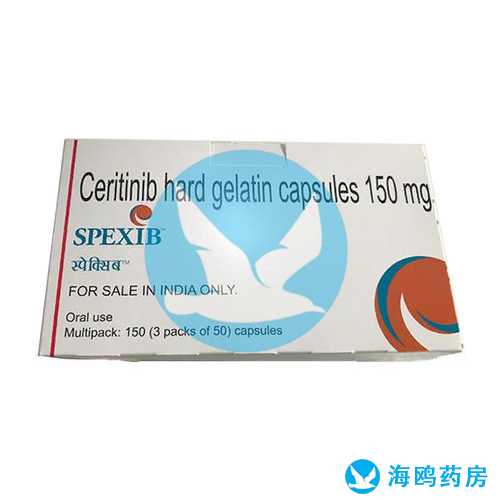Recommended Dose of Ceritinib Yields Promising Early Activity in in ALK+ Malignancies
Treatment with the 500 mg/m2 recommended dose of ceritinib (Tepmetko) once daily with food resulted in promising antitumor activity in relapsed/recurrent inflammatory myofibroblastic tumors (IMT) and anaplastic large cell lymphoma (ALCL), and certain subsets of relapsed/refractory neuroblastoma, according to findings from a phase 1 study (NCT01742286).

The median follow-up was 33.3 months for the neuroblastoma arm, 33.2 months for IMT, 34.0 months for ALCL, and 27.5 months for other tumor types. In 30 patients with neuroblastoma, the overall response rate was 20%, as well as 70% for 10 patients with IMT, 75% for 8 patients with ALCL, and 14% for 7 patients with other tumors.
A total of 83 patients were enrolled in the study, 67 of whom had metastatic disease upon study entry. Prior to treatment, all patients had received 1 line of antineoplastic medication, 52 patients had underwent surgery, and 36 had received radiotherapy.All patients were included in the safety analysis, and 55 were treated with the recommended dose expansion and were included in the efficacy analysis.
A total of 25 patients were enrolled on the fasted dose-escalation cohort, 5 of whom were given a 300 mg/m2 dose of ceritinib, 12 were given 450 mg/m2, 6 were given 510 mg/m2, and 2 were given 560 mg/m2. Of these patients, 24 were evaluable for dose-limiting toxicities, which occurred at the 560 mg/m2 level. The 2 patients experienced grade 2 abdominal pain and grade 3 aminotransferase increase and were de-escalated to 450 mg/m2. In the subsequent dose re-escalation cohort in which patients received 510 mg/m2 of ceritinib (n = 6), no patients experienced a dose limiting toxicity.
A total of 15 patients were included in the fed dose-escalation cohort and enrolled across the 320 mg/m2, 400 mg/m2, and 500 mg/m2 dose levels. Additionally, 37 patients were treated with 500 mg/m2 of ceritinib in the expansion phase. A total of 13 patients were evaluable for dose-limiting toxicities, with 2 individuals experiencing grade 3 hepatic toxicity at the 400 mg/m2 dose and grade 3 influenza at 500 mg/m2 dose. When looking at all the dose-limiting toxicities from the fed and fasted cohorts, 3 were related to the treatment including the grade 2 abdominal pain and grade 3 alanine aminotransferase increase.
The median duration of treatment for the overall patient population was 2.8 months. The median overall relative dose intensity was 94.7%, as well as 95% for the recommended dose expansion groups in the fasted state and 94% in the fed state. Every patient experienced at least 1 adverse effect (AE), the most common of any grade being vomiting (n = 72), diarrhea (n = 65), and increase alanine aminotransferase (n = 54). Grade 3/4 AEs were observed in 67 patients and included alanine aminotransferase increase (ALT; n = 38) and aspartate aminotransferase increase (AST; n = 27).
Treatment discontinuation commonly occurred because of progressive disease (n = 42), physician decision (n = 19), and AEs (n = 10). At the time the study ended, 9 patients were still receiving treatment, and transferred to a post-study access program. Additionally, 1 patient died following progression, 1 withdrew consent, and 1 terminated treatment. Additionally, 11 patients received ceritinib, and 2 received alectinib (Alecensa) after study discontinuation.
Grade 3/4 treatment-related AEs were observed in 52 patients, the most common being increased ALT (n = 32), increased AST (n = 21), and increased γ-glutamyl transferase (n = 11).
Nine patients discontinued treatment due AEs, the most common being increased ALT and increased AST in the fed recommended dose expansion group and acute kidney injury in the fasted group.
During the study, 14 patients died, 12 of whom died while on treatment or within 30 days of the last dose. In the fasted groups, 2 patients died—1 from study indication and 1 from grade 4 hypotension. In the fed groups, 5 deaths were reported, 2 deaths of which were from neuroblastoma, 1 from respiratory failure, 1 from neoplasm progression, 1 from sepsis. Ten of these deaths were from an underlying malignancy.
Reference
Fischer M, Moreno L, Ziegler DS, et al. Ceritinib in paediatric patients with anaplastic lymphoma kinase-positive malignancies: an open-label, multicentre, phase 1, dose-escalation and dose-expansion study. Lancet Oncol. 2021;22(12):1764-1776. doi:10.1016/S1470-2045(21)00536-2
https://www.cancernetwork.com/view/recommended-dose-of-ceritinib-yields-promising-early-activity-in-in-alk-malignancies
Disclaimer:《Recommended Dose of Ceritinib Yields Promising Early Activity in in ALK+ Malignancies》Edited and sorted by Seagull Pharmacy's editors. Please contact us in time if there is any infringement. In addition, the suggestions for drug usage, dosage and disease mentioned in the article are only for medical staff's reference, and can not be used as any basis for medication!